Title:
Therapeutic potentials of sigma-1 receptor ligands in experimental models of brain diseases
Organizers:
Eszter Farkas1 and Szilvia Veszelka2
1Department of Cell Biology and Molecular Medicine, University of Szeged, Szeged
2Institute of Biophysics, Biological Research Centre, Hungarian Research Network (HUN-REN), Szeged
Summary:
The symposium will focus on the potential therapeutic benefit of both endogenous and novel exogenous sigma-1 receptor (S1R) ligands for the treatment of CNS disorders. S1Rs are intracellular receptors primarily located on segments of the endoplasmic reticulum membrane that are physically associated with mitochondria, and are abundantly expressed in neurons, oligodendrocytes, and ependymocytes. S1Rs have a very versatile cellular function through regulation of lipid rafts, neuroreceptors, and ion channels, and can influence signal transduction and neuronal plasticity. Additionally, S1Rs accumulate to nuclear inclusions in neurons in neurodegenerative diseases and are a major factor in cellular calcium homeostasis, making them a promising therapeutic target.
In this symposium, experimental results show that both endogenous and newly synthesized S1R ligands play a protective role in preclinical experimental models of brain injury, particularly cerebral ischemia. Dimethyltryptamine (DMT), an endogenous S1R ligand, and the synthetic S1R agonist (S)-L1 are both protective against global and focal cerebral ischemia. S1R agonism supports neuronal and astrocyte survival, modulates microglial activity, and protects the blood-brain barrier. Based on the experimental evidence, S1R agonism emerges as a potential adjuvant pharmacological therapy in the treatment of cerebral ischemia.
Szabolcs Dvorácskó (HUN-REN Biological Research Centre, Institute of Biochemistry, Laboratory of Biomolecular Structure and Pharmacology Szeged, Hungary; National Institutes of Health, National Institute on Alcohol Abuse and Alcoholism, Rockville, MD, USA)
Potential use of sigma-1 receptor ligands and cannabinoid allosteric modulators in brain disorders
István Pesti (HCEMM-USZ Cerebral Blood Flow and Metabolism Research Group, Department of Cell Biology and Molecular Medicine, University of Szeged
Does N,N-dimethyltryptamine modulate microglial activity?
Sándor Nardai (Department Section of Vascular Neurology, Heart and Vascular Center, Semmelweis University, Budapest, Hungary)
Protective effect of DMT on blood-brain barrier disfunction in preclinical stroke models
Szilvia Kecskés (HCEMM-USZ Cerebral Blood Flow and Metabolism Research Group, Department of Cell Biology and Molecular Medicine, University of Szeged)
Effects of natural and synthetic sigma-1 receptor agonists in experimental cerebral ischemia
